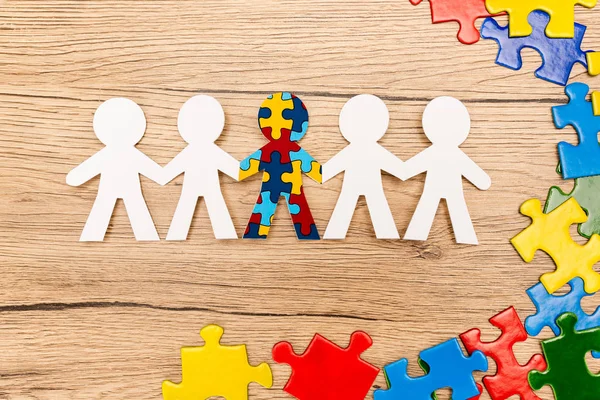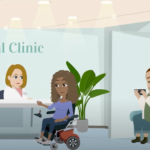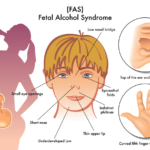Dr. Laura Sorg, the Ohio Department of Developmental Disability’s Medical Director, shared her personal experience with her son, who has autism spectrum disorder.
Autism Spectrum Disorder (ASD) is a developmental disorder that affects communication, social interaction, and behavior. It is called a “spectrum” disorder because it can vary widely in its presentation and severity.
Some common features of ASD include:
- Difficulty with social interaction, such as making eye contact, reading facial expressions and body language, understanding social cues, and engaging in social interactions.
- Repetitive behaviors and/or routines. Children or Adults with ASD may have repetitive behaviors such as hand-flapping, rocking back and forth, or obsessively lining up toys. They may also have a strong preference for routines and become upset if their routines are disrupted.
- Communication challenges. People with ASD may have difficulty with verbal and nonverbal communication. They may have delayed speech, struggle with maintaining a conversation, or have difficulty understanding figurative language.
- Sensory sensitivities. People with ASD may have heightened or reduced sensitivity to sounds, sights, textures, tastes, or smells.
It’s important to note that each person with ASD is unique and may have a combination of these and other features.
How should families get support?
“Families of individuals with ASD can get support in a number of ways:
- Seek out professional help. Our physician was where we started when we had concerns regarding my son, Jake. Physicians, therapists, and other professionals can help with information and referrals.
- Connect with advocacy organizations and/or support groups.
- Attend educational events! DODD, county board associations and many other groups have amazing live events and webinars. Check out your local county board and DODD’s website for details.
- Don’t forget about community, county and state resources! Jake’s early intervention (EI) team and SSA in our county helped guide our way.”
What is it like to be a mother of a child with ASD?
“Being a mom to a child with autism has been both rewarding and challenging. There have definitely been emotional ups and downs. Through the years I have felt fear, joy, frustration, and even sadness. I have had days with tears of happiness when he achieved a new milestone and then tears of sadness when Jake had a meltdown or difficulty with communication or behavior. Despite the challenges, I have had the opportunity to celebrate Jake’s strengths and accomplishments. What I have realized what I may want for Jake isn’t what he wants or may need. I take great joy in seeing him grow in his own way.”
Is there anything you would say to encourage new parents who have recently had a child with ASD diagnosis? “You are not alone! 1 in 36 children have autism. There are many other families who have been through this experience and are willing to offer support and guidance.
- Seek out support groups or organizations that can connect you with other families who understand what you’re going through.
- Your child is still the same child you have always loved. An ASD diagnosis does not change who your child is. They still have unique strengths and talents that make them special.
- Early intervention is key! EI can make a HUGE difference in your child’s development. Getting started with these services as soon as possible can help your child reach their full potential. Visit https://ohioearlyintervention.org/.
- Celebrate small successes! Celebrate every achievement, no matter how small. One of Jake’s successes early on in EI was when he said, “I am happy”. I will never forget that moment!
- Take care of yourself. This one can be tough! It’s important to take care of your own well-being so that you can be there for your child. Make time for self-care. For me, this gave me guilt, but it helped me to rewind or recharge.”
Why is it important to share about Autism Acceptance Month?
“Autism Acceptance recognizes that everyone is unique! Differences should be celebrated rather than stigmatized. All individuals have unique strengths and talents. It is important to not only be aware of individuals and their needs but be inclusive and accept autistic individuals as they are.”
What are things caregivers should consider for people with ASD?
“Caregivers of individuals with ASD should prioritize understanding their unique needs and strengths. I would recommend caregivers work with healthcare providers, educators, and therapists to develop individualized plans and strategies that support their overall well-being and success. In particular, communication, sensory needs, and mental health may all be important pieces of the conversation.”
Anything else you would like to share?
“Autistic Individuals are individuals. Each person is unique and may have unique needs and preferences. Jake is one of the coolest people I know. He may not be able to throw a touchdown pass, but neither can I! We each have our own set of strengths and weaknesses. Helping Jake find his strengths while navigating his challenges has been one of life’s best adventures as a mom.”
Source: DODD





